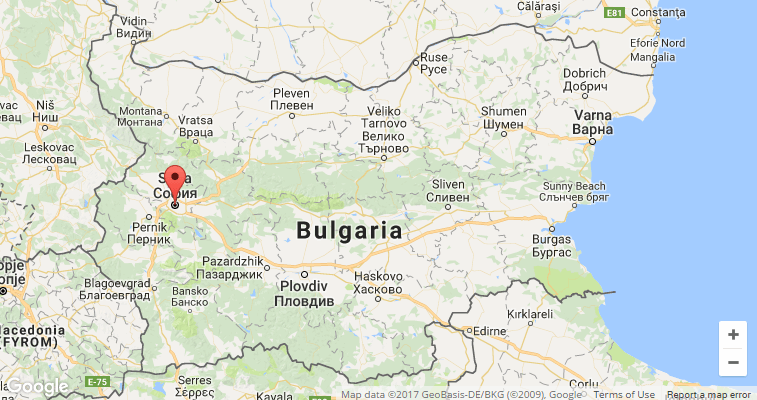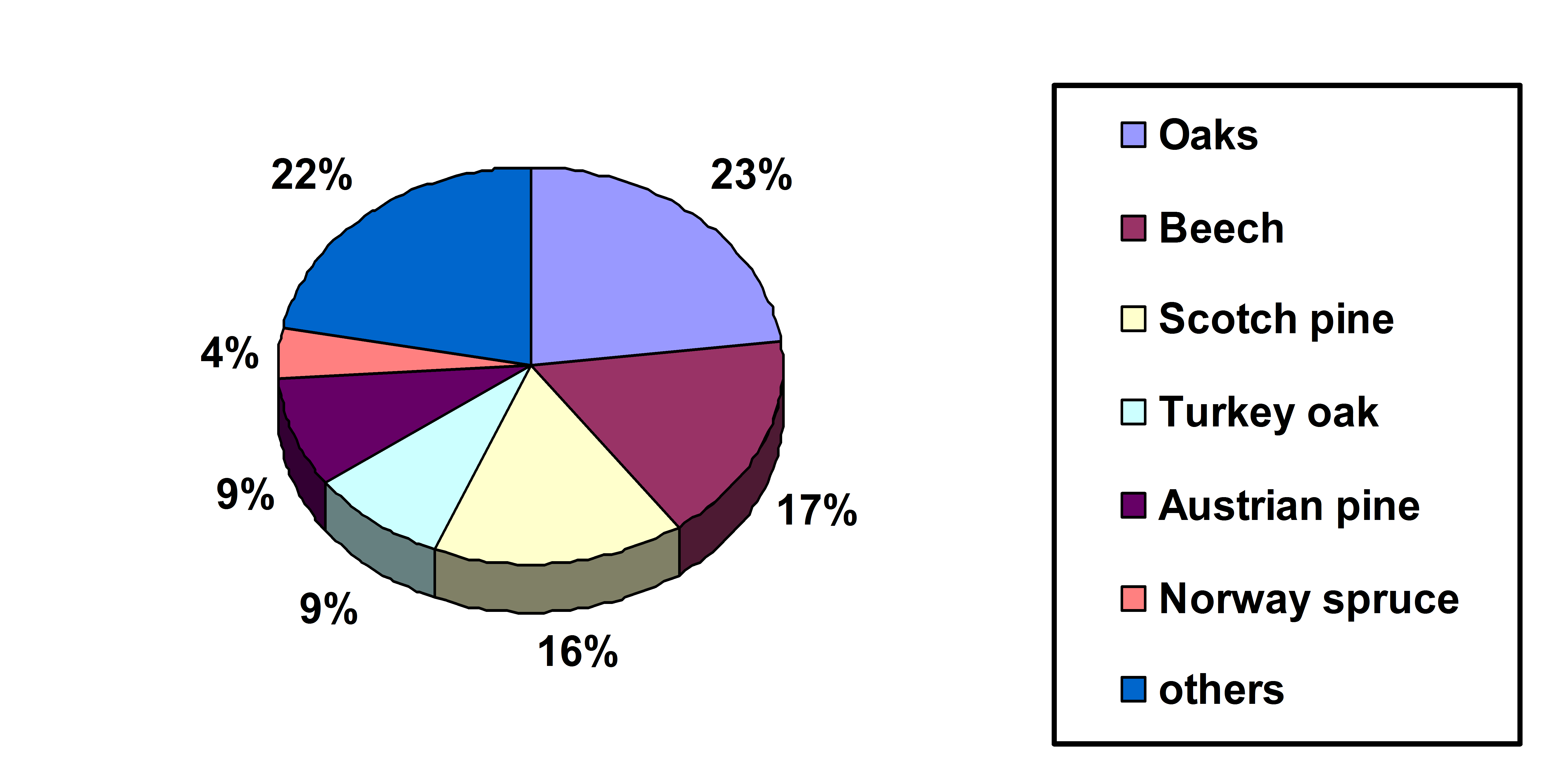OFFICIAL NAME: Republic of Bulgaria
AREA: 110,993.6 km2
POPULATION: 7,101,859
OFFICIAL LANGUAGE: Bulgarian
CAPITAL: Sofia
POPULATION OF THE CAPITAL: 1,7 mio
Bulgaria, officially the Republic of Bulgaria is a country in south-eastern Europe. It is bordered by Romania to the north, Serbia and N. Macedonia to the west, Greece and Turkey to the south, and the Black Sea to the east. With a territory of 110,994 square kilometres, Bulgaria is Europe’s 16th-largest country.
Bulgaria’s population of 7.2 million people is predominantly urbanised and mainly concentrated in the administrative centres of its 28 provinces.
Bulgaria is a unitary parliamentary republic with a high degree of political, administrative, and economic centralisation. It is a member of the European Union, NATO, and the Council of Europe and others.
Bulgaria features notable diversity with the landscape ranging from the snow-capped peaks in Rila, Pirin and the Balkan Mountains to the mild and sunny Black Sea coast. From the typically continental Danubian Plain in the north to the strong Mediterranean climatic influence in the valleys of N. Macedonia and in the lowlands in the southernmost parts of Thrace. Most of the country is situated within the humid continental climate region, with Alpine climate in the highest mountains and subtropical climate in the southernmost regions.
The relief of Bulgaria is varied. In the relatively small territory of the country there are extensive lowlands, plains, hills, low and high mountains, many valleys and deep gorges.The main characteristic of Bulgaria’s topography is four alternating bands of high and low terrain that extend east to west across the country. From north to south, those bands, called geomorphological regions, are the Danubian Plain, the Balkan Mountains, the Transitional region and the Rilo–Rhodope region. The easternmost sections near the Black Sea are hilly, but they gradually gain height to the west until the westernmost part of the country is entirely high ground.
CONTACT
Ms Nikoleta Grigorova Dineva
Chief Expert in Executive Forest Agency
Ministry of Agriculture and Food of the Republic of Bulgaria
T: + 359 2 904 5361
E: dineva@iag.bg

BULGARIAN FORESTRY AND FORESTS
Forest area
The total forest territory in Bulgaria is approx. 37% of the total country area. More than 90 % of it is afforested. The growing stock exceeds 680 million m3 with an annual increment of about 14 million m3. Тhe ratio of coniferous to deciduous forests is 1: 3. The distribution of the most common tree species is shown on Figure 1.
Fig. 1. Distribution of main tree species

The Bulgarian forests are distinguished by extremely rich biological diversity of coniferous and deciduous species.
The forest management in the last decades supports the natural regeneration of forests (about 70%). The share of forest plantations is about 20% and the virgin forest is about 10%.
There is increase the area of middle-age and of mature coniferous forests at the expense of reducing the area of young forests. Data on age structure of the deciduous high – stem forests also show an increase in the share of middle age and mature plantations.
According to EFA`s (Executive Forest Agency) official data to 31.12.2018, 3 090 010 ha (72,58 %) are state forest areas, of them: 172 307 ha (4,05 %) – managed by the Ministry of Environment and Waters (MOEW), including National parks and reserves; 11 268 ha (0,26%) Experimental forest stations, managed by the University of Forestry. Municipal forests are 558 116 ha (13,11 %) and 492 308 ha (11, 56%) belong to of private individuals, private entities and religious communities. More than 55% of the forest territory is included in Natura 2000 ecological network.
ECONOMIC ASPECTS OF FORESTS
FOREST MANAGEMENT IN BULGARIA
Forest activities in the Bulgarian forests are aimed to protection and increase of the main functions of forests through cultivation of forests, giving priority to the natural renewal, conservation of genetic resources, maintenance and restoration of biological diversity, etc. The maximum removals use of the natural regenerational potential of the forests and its support are the basis of all forests activities related to forest management.
Maintenance of natural (bioecological) functions of the forests is also provided for the economic sustainability of the forest sector. Conservation and production are equally important for the society.
The balance between the average annual increment and average annual use of timber is one of the most important indicators for the sustainable management of forests.
The analysis of data on forest recourses on a national scale indicates that after 1980 the usage starts to seriously lag in comparison of the growth. Since 1990 i.e. during the past two decades, in the Republic of Bulgaria the amount of the annual use of wood varies from 34 % to 55% of the total average annual increment of forests in the country.
According to official data the harvested timber for 2018 was 8 278 711 m3. The harvesting from state forests is 6 447 693 m3, from municipal forests – 904 463 m3 and from private forests – 926 555 m3.
Of particular importance for the Bulgarian forests is the provision of quality reproductive material, the preservation of biological diversity and conservation of indigenous species improved by the methods of forest genetics and selection of genetic resources.
According to official data forest seed producting base occupies 1% of the total wooded area of the country and the number of basic resources is around 5, 101 of 48 tree species – 15 coniferous and 33 deciduous.
PROTECTION AND CONSERVATION OF FORESTS IN BULGARIA
The data provided by the system of monitoring and control of various biotic and abiotic agents damaging forests, show that in the last five years the most serious risk factors continue to be forest fires and pests diseases. Windthrows, snowfalls, drought and floods have not shown noticeable negative impact on the development of forest ecosystems in the country. For 2018 222 forest fires were registered and the burned forest area was 1453 ha, which is much lower than the previous two years.
FOREST POLICY
The Forest Law adopted in 2011 and the related regulations are the main legal framework governing the sustainable forest management in Bulgaria. The strategic goals are directed at ensuring multifunctional management of forest ecosystems including protection and enhancement of forest territory; maintenance and improvement the condition of forests; ensuring and maintenance the ecological, social and economic functions of forests; ensuring and increasing the production of timber and non-timber forest products through environmentally sound management of forest areas; maintenance of biological and landscape diversity.
Other key documents for the development the sector are the Law on Hunting and Game protection Act, the National Strategy for Development of the Forestry Sector in the Republic of Bulgaria comprising the period 2013-2020, Strategic Plan for the development of the forestry sector in Republic of Bulgaria 2014 -2023, Protected areas Act, Environmental Protection Act, Biodiversity Act, Renewable Energy Act, etc..
FOREST ECONOMICS
Although the forest sector forms a relatively small share of the Gross Domestic Product (GDP), forestry and forest industry as a traditional means of livelihood are of particular importance for the development of rural areas in Bulgaria and the improvement of the quality of life.
The favorable natural conditions and the traditions in forestry and the forest industry in the presence of internal and external markets for forest products and services are the prerequisite for the development of activities, providing income from sales of timber and non – wood forest products, the provision of ecosystem services in t.h water –developing and water protection, soil forming and soil protection, etc., as well as for the production of biomass.
The increasing importance of the forest areas as a natural environment for recreation and tourism and the development of activities that generate employment in rural areas should be taken in account.
Forests are one of the main sources of biomass and can contribute to the achievement of the objectives of the European energy policy, including curbing the negative changes in climate and the promotion of economic growth and employment, secure and affordable energy for consumers and the implementation of the commitment made in Bulgaria to increase the proportion of energy from renewable energy resources in the amount of 16% to 2020.
BULGARIAN INSTITUTIONS ASSOCIATED WITH FORESTRY, FOREST RESEARCH AND EDUCATION
Forest Research Institute is the one of main institution which carry out fundamental and scientific-and-applied investigations of forest ecosystems, which play a key role in the environment, both in its entity and inviolability and in conditions of anthropogenic impact, including mitigation of climate change consequences. The Forest Research Institute makes the theoretical and scientific basis for practical decisions with regard to forestry systems for management, forest genetic resources, protection of forests, erosion and flood control, as well as support of policies and legislation in the field of forest and nature conservation.
Based on the relationship between traditions and innovations in forestry and biological sciences, as well as on priorities of the Bulgarian Academy of Sciences, specific research activities of the Forest Research Institute include: studies on structure, functioning and adaptation of forest ecosystems to climate change and other natural and anthropogenic impacts; development of programs for ecological management and utilisation of forests and their products; study on biological resources and protection of forest flora and fauna.
Accumulated knowledge in different units support the development of measures and approaches of ecological and sustainable management of forests to minimize the negative ecological consequences. The Institute carries out training of PhD. students, organises training courses to improve the qualification of specialists in the field of ecology and forestry. Expert activity is widely practiced, as well. Researchers from the Institute are invited as consultants, reviewers and experts in various problematic and expert councils, as well as for the development of normative documents.
The Forest Research Institute offers developed research infrastructure, providing carrying out of modern investigations: laboratories with up-to-date scientific appliances, field stations, monitoring network, information centre and library. Popularization of results from studies is possible through editing of two scientific journals – Nauka za gorata (Forest Science) in Bulgarian and English and Silva balcanica in English language and through organising of scientific conferences, symposia and seminars.
The Forest Research Institute is directed to the following basic priority fields of study: biological diversity in forest flora and fauna, genetic resources – peculiarities, dissemination and possibilities for conservation and utilization; structure, functioning and adaptation of forest ecosystems to climate change; monitoring, protection and restoration of forests; silvicultural and social-economic bases for sustainable and multifunctional management and utilisation of forest resources.
UNIVERSITY OF FORESTRY – BULGARIA
The mission of the University of Forestry (UF) – Sofia, as a State Higher School, is to carry out the state policy for the development of the higher education and science in the Republic of Bulgaria in a uniquely combined complex of specialties related to the management and technological provision of the use of natural resources, products and services. UF is a nationally recognized educational and scientific centre, called to provide highly qualified specialists with higher education, as well as to develop scientific and research activities in the fields of Forestry, General Engineering, Earth Sciences, Veterinary Medicine, Plant Breeding, Plant Protection, Tourism, Administration and Management. With its highly educated academic staff of nationally recognized and internationally recognized lecturers and scientists, the University of Forestry provides personnel recruitment and scientific servicing of major branches for the country and their sectors – forestry, woodworking and furniture industry, engineering design, ecology and environmental protection, landscape architecture, agriculture, veterinary medicine, alternative tourism, etc. In this way, the main aspects of the mission of the university institution – the creation, dissemination and use of knowledge and skills for the benefit of society are covered. As an autonomous university, UF seeks to maintain and develop an academic environment in which not only the training of qualified staff is achieved, but also to educate socially responsible individuals showing entrepreneurship, adaptability and creative capabilities for successful professional realization, adopting the European values for lifelong learning and contributing to the prosperity of Bulgaria and the development of the European Union towards a “knowledge-based economy”. The activity of the UF for the fulfillment of this mission is based on the country’s traditions in higher education, the achievements in the above-mentioned fields with full respect for the interests of the Republic of Bulgaria and harmonization with the requirements of the European higher education and the trends in the development of the European educational and scientific space.
Experts (foresters) in the field of forestry are also educated and trained in four professional high schools, which are located in the towns of Velingrad, Bansko Teteven and Berkovitsa.
Stay informed
Get the latest news and information about CEEC to China –forestry mechanism.





